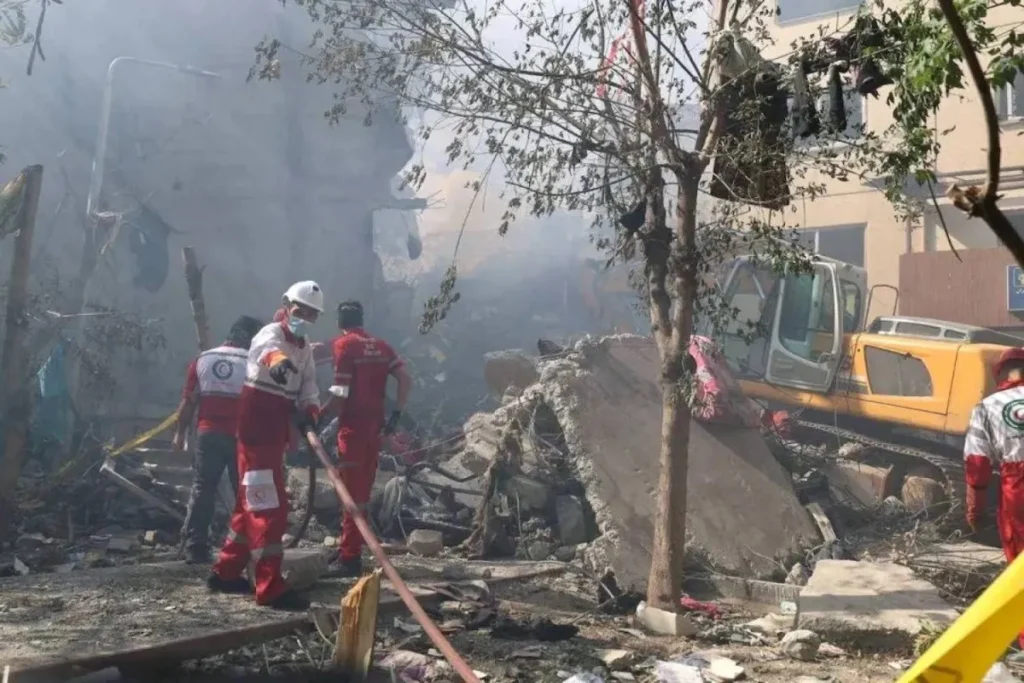Economic experts have warned that a protracted conflict between Israel and Iran could have far-reaching repercussions on the global economy, driving up energy prices and disrupting key sectors including aviation, insurance, trade, and maritime navigation.
Speaking to Asharq Al-Awsat, Saudi Shura Council member Fadl Al-Buainain said the ongoing military confrontation is already impacting global energy markets, with oil prices spiking to multi-month highs in the immediate aftermath of the outbreak.
He warned that continued Iranian threats to close the strategic Strait of Hormuz could further fuel the surge in energy prices. “Such an act would be hostile, not only to Gulf nations but also to global consumers, compounding the challenges already facing the world economy”, Al-Buainain said.
He stressed that the energy sector is particularly vulnerable to military escalations. “Any disruption to oil production or exports from major producers could send oil and gas prices skyrocketing, with direct consequences for global economic stability”, he said.
While current military actions have had limited impact on output and exports, Al-Buainain cautioned that any direct strikes on energy infrastructure could push oil prices above $100 per barrel, depending on how badly global supply chains are hit.
The conflict has already disrupted international flight routes and increased operational costs for airlines, he said, while surging risk premiums have driven up insurance costs across the region. Maritime trade and shipping lanes are also at risk of direct disruption.
Al-Buainain noted that the fallout will vary across the region. He pointed out that Saudi Arabia, thanks to its strategic location and Red Sea ports, is better positioned to maintain the flow of trade. The kingdom also benefits from pipelines that transport oil from the east to the west, partially shielding its exports from Gulf disruptions.
He described energy as the “real engine” of the global economy and said it, along with foreign trade, will bear the brunt of the economic impact. “But the human cost and developmental setbacks caused by war are far worse”, he added.
Al-Buainain warned that prospects for a swift diplomatic resolution are diminishing. “Starting wars is easier than ending them,” he said, adding that an Iranian move to shut down Hormuz, while difficult in practice, could spark a direct confrontation with global powers, particularly the United States. “If American interests are attacked, Washington could be drawn into the conflict, which risks expanding beyond control”.
Khaled Ramadan, head of the Cairo-based International Center for Strategic Studies, said Israel’s strikes on Iranian energy infrastructure, including the Abadan refinery, which has a capacity of 700,000 barrels per day, could severely reduce oil and gas supplies if the conflict drags on.
He told Asharq Al-Awsat that Brent crude had already risen 8–13% following the escalation, crossing $78 per barrel. “Should the Strait of Hormuz be closed, we could see oil prices surge to record levels”, he warned.
Ramadan said the conflict could also disrupt global supply chains, especially through Hormuz, affecting non-oil goods such as electronics and food. Shipping and insurance costs would rise, leading to higher consumer prices and a slowdown in global trade.
Food staples such as wheat and corn, along with petrochemicals, garments, electronics, auto parts, and pharmaceuticals are all likely to see price increases, he said, citing higher energy and transport costs as well as declining market confidence.
Ramadan added that the economic fallout includes rising inflation, weakening currencies, and a drop in investment — particularly in tourism and tech.
“The Iranian rial and Israeli shekel have already hit their lowest levels this year,” he noted, adding that the war could reshape global energy alliances, with Europe increasingly seeking alternative suppliers.



